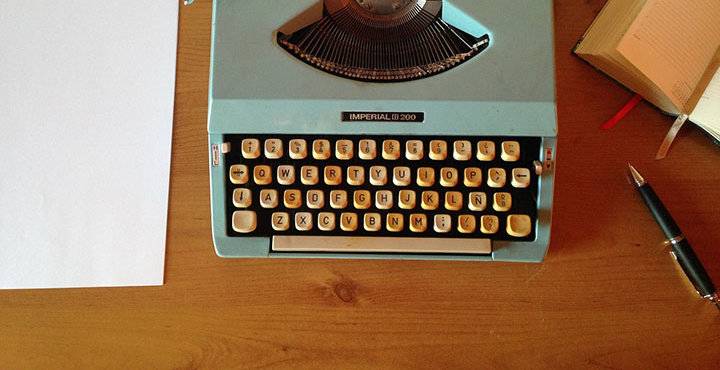Tips on how to craft the perfect query letter
Writing a pitch or query letter is the first step to getting published. Agents and editors read query letters to find new material they are interested in selling or publishing. Most agents and editors do not read unsolicited material, but they will almost always read an unsolicited query letter. If you can write a query letter that sparks their interest, they will request a sample of your book.
Writing a query letter can sometimes seem like an impossible task—how can you possibly sum up your entire novel or screenplay in just one page? It's hard to sell your own work. Read this article, refer to our query letter sample, and check out our letter writing ebook for helpful advice.
The basics of writing an effective query letter
Keep your pitch letter to one page
A query letter should never be longer than one page. Think of your letter like a magazine advertisement. Advertisements do not include endless information about the product—they are brief, catchy, and intriguing. They make the consumer want to learn more. This is the goal of your query letter. You want to leave the agent or editor wanting more.
Use standard business letter format
Format your query letter like a formal letter, using a traditional 11- or 12-point font (Courier or Times New Roman), single space paragraphs, and double space between each paragraph. Include the date, your name, address, phone number, and email. Formally address your pitch letter to a specific agent or editor you have located through research. Do not send your query letter on wacky stationery or use a non-traditional font or greeting. These are red flags to agents that a writer is an amateur, and they will not take time to read your pitch.
Write a three-paragraph letter
Construct the body of your query letter as three distinct paragraphs. The opening paragraph is known as the hook. The middle paragraph is a brief synopsis of your book. The third paragraph is your writer's biography.
Open big
Agents and editors are very busy, but they are also on the lookout for new material. Since you have mere seconds to grab their attention, it is important to open with a very strong and catchy first paragraph.
Reel 'em in with a hook
The following are suggestions for strong opening lines, also known as hooks:
- Open with the setting: "It was the summer of 1945, post-World War II Paris…"
- Open with your main character: "An urban love story about a young Irish dancer who moves to London…"
- Open by describing a central event: "While working as an undercover police officer on the streets of Chicago, Charlie discovers the shocking truth about…"
- You can also open with your main theme: "A memoir about family secrets and reconciliation…"
These are only suggestions, and keep in mind that writing an effective hook will take practice and research. Read the back covers of books that are similar in style to your work, and take note of hooks you find interesting so that you can incorporate those elements when crafting the opening paragraph of your query letter. Also make sure to include the book's title, word count, and genre in this paragraph.
Keep your query letter synopsis brief
When writing a synopsis for your pitch letter, remember to focus on the highlights or main points of your work. The synopsis is not the place to focus on details. Trying to condense a work that is hundreds of pages long into one paragraph is not easy and will require a great deal of editing and revising. Remember, you are only trying to garner interest in your book. If an agent wants to learn the details about why your main character has lived in 12 countries in three years, or wants to know specifically how a disease impacts a family, he or she will ask to read your book.
Basic dos and don'ts of query letter writing
Do
- Include a self-addressed stamped envelope with your query letter. This is necessary to receive a reply.
- Do your homework! Research agencies and editors to find those that fit your market. If you are writing young-adult fiction, you'll want to send your letter to agents that specialize in that genre. Bookstores, the library, and the Internet are all great resources for researching agencies and publishers.
Don't
- Open your query letter by praising the agency or by explaining how you found them. They are not interested, and this will waste space you can spend talking about your book.
- Do not praise your work. Do not tell agents how your book is going to be "the next bestseller." This will annoy agents, as their profession is finding material to sell and they are experts on the literary marketplace.
- Send any of your actual book along with your query—unless an agent specifically requests it. When researching agencies, follow their submission guidelines exactly; otherwise they may toss your submission into the slush pile.
- Pay an agency to read your book. While most agencies are truly interested in finding new material, some fraudulent agencies will send you a letter or email asking to see sample material, but will also request that you send a payment for their services. This is ALWAYS a scam. Legitimate agencies will never charge you money.
Some final thoughts...
Finally, persevere and be willing to learn. Submitting query letters is a long and often grueling process, but it is also an opportunity to hone your skills as a professional writer and to develop your ability to market your work. It is important to have your pitch letter edited to correct any grammatical or stylistic errors you may have missed. Our query package service is designed to create a query letter based on your book.
Image source: Marisa_Sias/Pixabay.com



